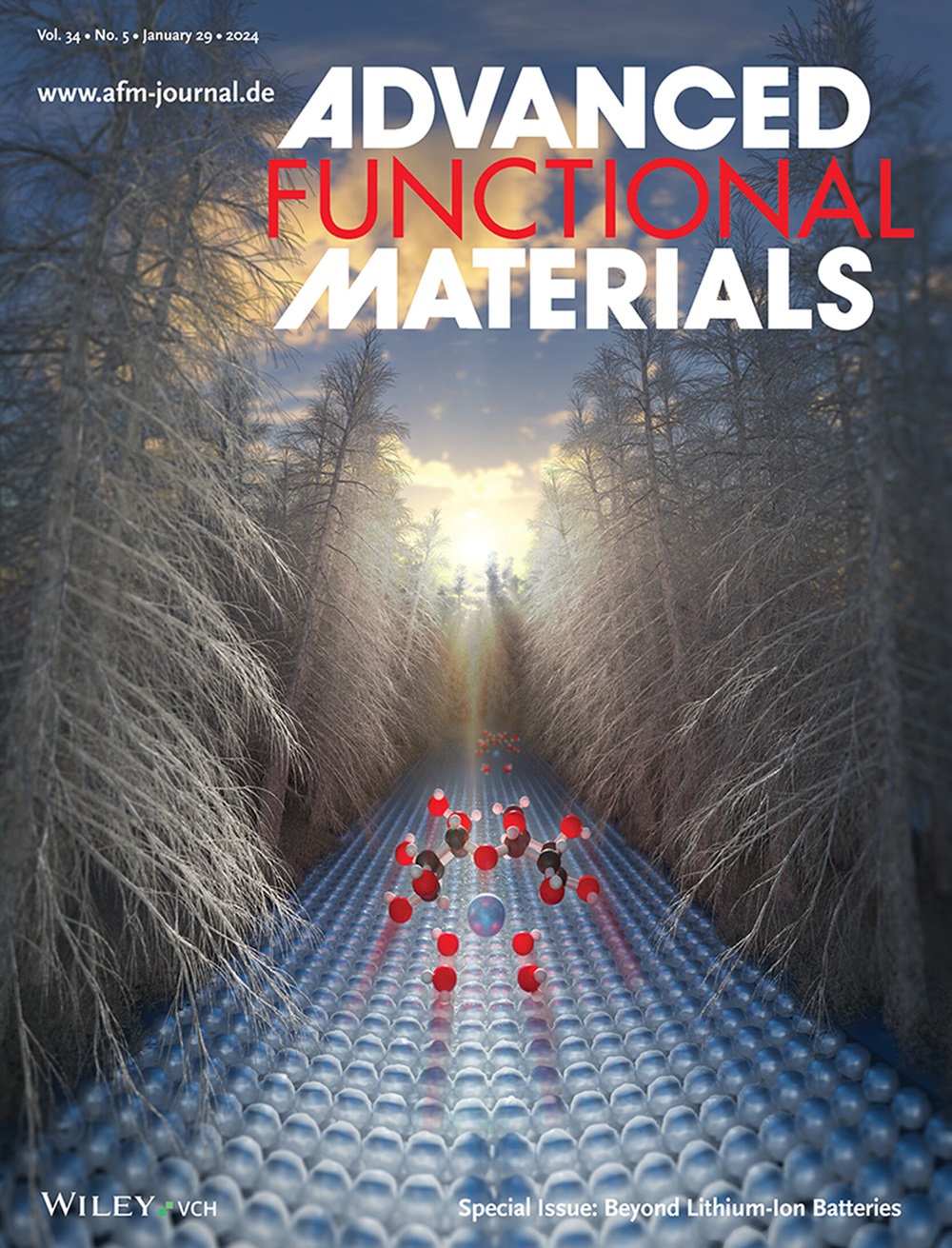Polyoxazoline-Based Gene Delivery System Mediated Tumor Vascular Normalization and Extracellular Matrix Degradation to Inhibit Cancer Growth, Recurrence, and Metastasis
IF 18.5
1区 材料科学
Q1 CHEMISTRY, MULTIDISCIPLINARY
引用次数: 0
Abstract
Gene therapy has brought hope for curing major diseases including cancer. However, an efficient and safe delivery system is key for successful gene therapy. In this study, PPERD (i.e., OHC-PEG-CHO/PEtOx0.2-PEI0.73-PRGD0.07/DNA), polyoxazoline-based gene delivery system is developed to mediate tumor vascular normalization and extracellular matrix (ECM) degradation for cancer therapy. The aldehyde groups of OHC-PEG-CHO can form Schiff base bonds with the amine groups of PER (i.e., PEtOx0.2-PEI0.73-PRGD0.07), thereby enabling in situ encapsulation of PERD (i.e., PER/DNA) and rapid pH responsiveness in tumor tissues. PPERD possesses an excellent in vitro transfection performance and good biocompatibility. PPERD can efficiently accumulate, penetrate, and transfect in tumors once intravenous administration. PPERD effectively normalizes tumor vasculature and degradates ECM, enhances the infiltration and function of cytotoxic T lymphocytes, thereby inducing an antitumor immune response in vivo. Moreover, PPERVH ((i.e., OHC-PEG-CHO/PEtOx0.2-PEI0.73-PRGD0.07/(pshVEGF+pHAase)) can also efficiently inhibit cancer recurrence and metastasis by triggering durable anti-tumor immune memory effect. Furthermore, PPERVH significantly enhances the effectiveness of immune checkpoint blockade-mediated immunotherapy. This gene therapy strategy provides a promising paradigm for inhibiting cancer growth, recurrence, and metastasis.

基于多恶唑啉的基因传递系统介导肿瘤血管正常化和细胞外基质降解抑制肿瘤生长、复发和转移
基因疗法为治疗包括癌症在内的重大疾病带来了希望。然而,有效和安全的递送系统是基因治疗成功的关键。本研究开发了基于多恶唑啉的PPERD(即OHC-PEG-CHO/PEtOx0.2-PEI0.73-PRGD0.07/DNA)基因传递系统,介导肿瘤血管正常化和细胞外基质(ECM)降解,用于癌症治疗。OHC-PEG-CHO的醛基可以与PER的胺基(即PEtOx0.2-PEI0.73-PRGD0.07)形成席夫碱键,从而在肿瘤组织中实现PERD(即PER/DNA)的原位包封和快速pH响应。PPERD具有良好的体外转染性能和良好的生物相容性。经静脉给药后,PPERD能有效地在肿瘤中积累、渗透和转染。PPERD有效地使肿瘤血管正常化,降解ECM,增强细胞毒性T淋巴细胞的浸润和功能,从而在体内诱导抗肿瘤免疫反应。此外,peperh(即OHC-PEG-CHO/PEtOx0.2-PEI0.73-PRGD0.07/(pshVEGF+ phase))也能通过触发持久的抗肿瘤免疫记忆效应,有效抑制肿瘤复发和转移。此外,pperh显著提高免疫检查点阻断介导的免疫治疗的有效性。这种基因治疗策略为抑制癌症生长、复发和转移提供了一个有希望的范例。
本文章由计算机程序翻译,如有差异,请以英文原文为准。
求助全文
约1分钟内获得全文
求助全文
来源期刊

Advanced Functional Materials
工程技术-材料科学:综合
CiteScore
29.50
自引率
4.20%
发文量
2086
审稿时长
2.1 months
期刊介绍:
Firmly established as a top-tier materials science journal, Advanced Functional Materials reports breakthrough research in all aspects of materials science, including nanotechnology, chemistry, physics, and biology every week.
Advanced Functional Materials is known for its rapid and fair peer review, quality content, and high impact, making it the first choice of the international materials science community.
 求助内容:
求助内容: 应助结果提醒方式:
应助结果提醒方式:


